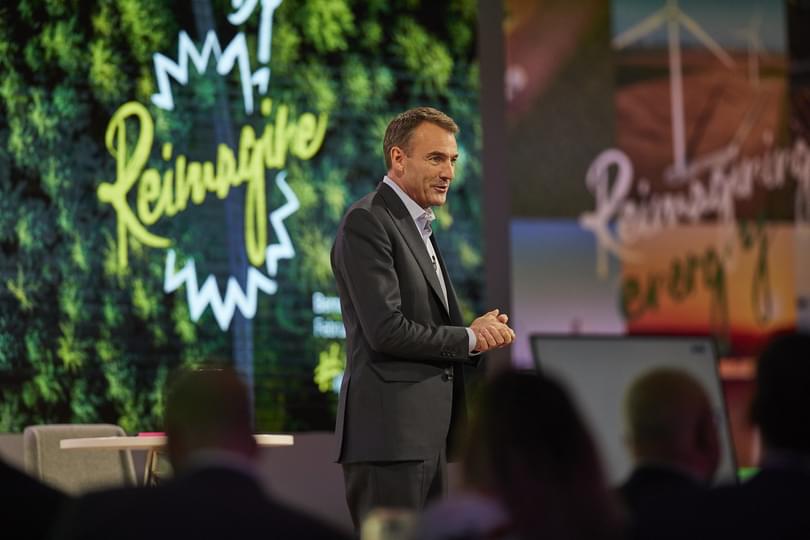
It’s not often that environmental campaigners find themselves siding with the CEO of one of the world’s largest mining firms.
Yet amid the mixed reception to BP’s announcementthat it plans to cut its emissions of carbon dioxide to net-zero by 2050, Glencore’s CEO Ivan Glasenberg echoed many activists’ views in his withering dismissal of BP’s plan as a ‘long way to go, and [a] wishy-washy idea’. Others have lauded BP’s target as setting a new benchmark for climate ambition in the fossil fuel industry.
Eliminating net emissions of CO2 from across the activities of one of the largest oil supermajors within three decades would unquestionably be a significant departure from business as usual. But does BP’s announcement go far enough?
Since the 19th Century, BP’s products have been responsible for nearly 2.5% of global greenhouse gas emissions, the fourth largest contribution of any corporation. Through its oil and gas production, BP remains one of the biggest contributors to climate change: while the direct emissions from its operations stand at 55 million tonnes of CO2 equivalent (MtCO2e, a metric which accounts for the differing relative contributions of carbon dioxide and other greenhouse gases to warming) annually, embedded in its oil and gas products is a further 360 MtCO2e: a total of 415 MtCO2e. By means of comparison, the UK’s greenhouse gas emissions in 2018 stood at 451 MtCO2e.
The fossil fuel industry has also led campaigns of denial, deceit and obfuscation of climate science. For decades, big oil has funded efforts to stymie political action on greenhouse gas emissions. As recently as 2018, BP bankrolled a successful campaign to block the introduction of the first state carbon tax in the US, and in December 2019, environmental lawyers Client Earth submitted a complaint to the OECD against a major BP advertising campaign, alleging that it was misleading and inaccurate.
Following BP’s new announcement, what should we expect to change?
BP’s new pledges would, if realised, eliminate their contribution to climate change beyond 2050, both from its direct emissions and those produced by the combustion of its products. In addition to emissions reductions, BP has dropped the advertising campaign subject to Client Earth’s complaint and has pledged improved transparency in reporting and relationships with trade associations, and to align its political advocacy with its net-zero ambition. A welcome goal, but the proof will be in the pudding.
Getting to net zero does not, of course, remove BP’s historic contribution to the devastating impacts of the climate crisis – harms for which they may still be held liable in the courts. Nor does it mean that BP will achieve its short-lived promise to go ‘Beyond Petroleum’, as it sought to rebrand itself in the early 2000s. Instead, BP’s statement provides no commitment to fully wind down its fossil fuel production and achieving net zero is likely to require significant investment in carbon capture technology and offsetting of residual emissions.
How does BP’s commitment stack up against the goals of the Paris Agreement?
The Oxford Martin Principles for Climate-Conscious Investment provide a science-based means of evaluating corporate alignment with the Paris Agreement. According to the Principles, Paris-compliant companies must (1) commit to net-zero emissions, (2) develop a profitable net-zero business plan, and (3) set quantitative mid-term targets aligned with achieving the net-zero goal. BP’s pledge addresses only Principle 1.
By pledging to eliminate net emissions of carbon dioxide by the middle of the 21st Century, BP has taken an important first step towards meeting the goals of the Paris Agreement which should serve as a touchstone for the rest of the fossil fuel industry. Recent research undertaken by the Oxford Martin School, in collaboration with the London School of Economics, found that 90% of the 132 largest publicly-listed energy companies do not yet have a plan for net zero. Of those that do, few include the emissions associated with the fossil fuel products they sell within their targets.
Welcome though BP’s targets are, goals alone do not affect the climate system. Investors and campaigners must discriminate between ambition and action and push firms until they are demonstratively on track to meet their targets.
The true test for BP will come when the firm sets out its strategy, this September. At that time, BP must map out how they will achieve their targets and provide medium-term objectives with which investors can monitor their progress. Alignment with the Paris Agreement – in practice, rather than in ambition – demands that BP also demonstrate that their capital investment is directed towards building a company fit for a net-zero future.
BP’s aims are a start. But until they disclose a credible plan to achieve them, aims are all they are.
This opinion piece reflects the views of the author, and does not necessarily reflect the position of the Oxford Martin School or the University of Oxford. Any errors or omissions are those of the author.
